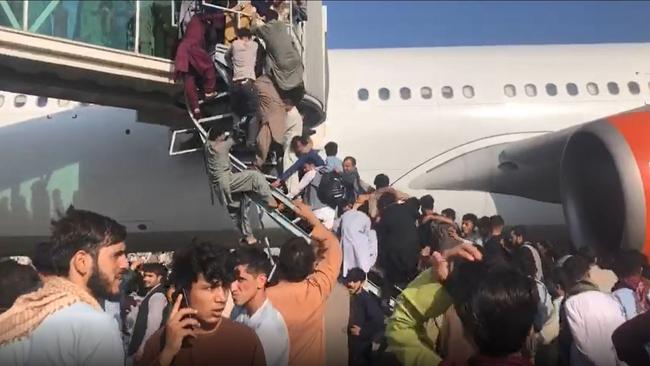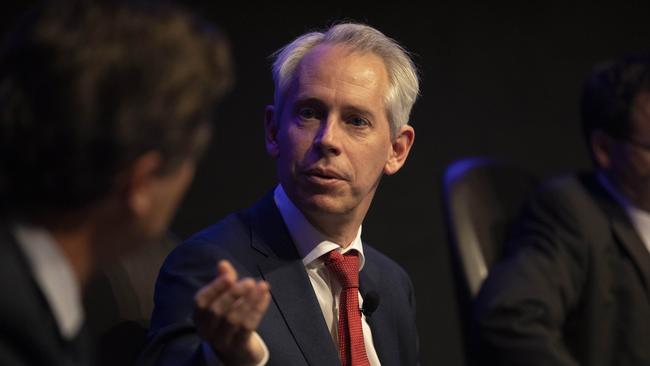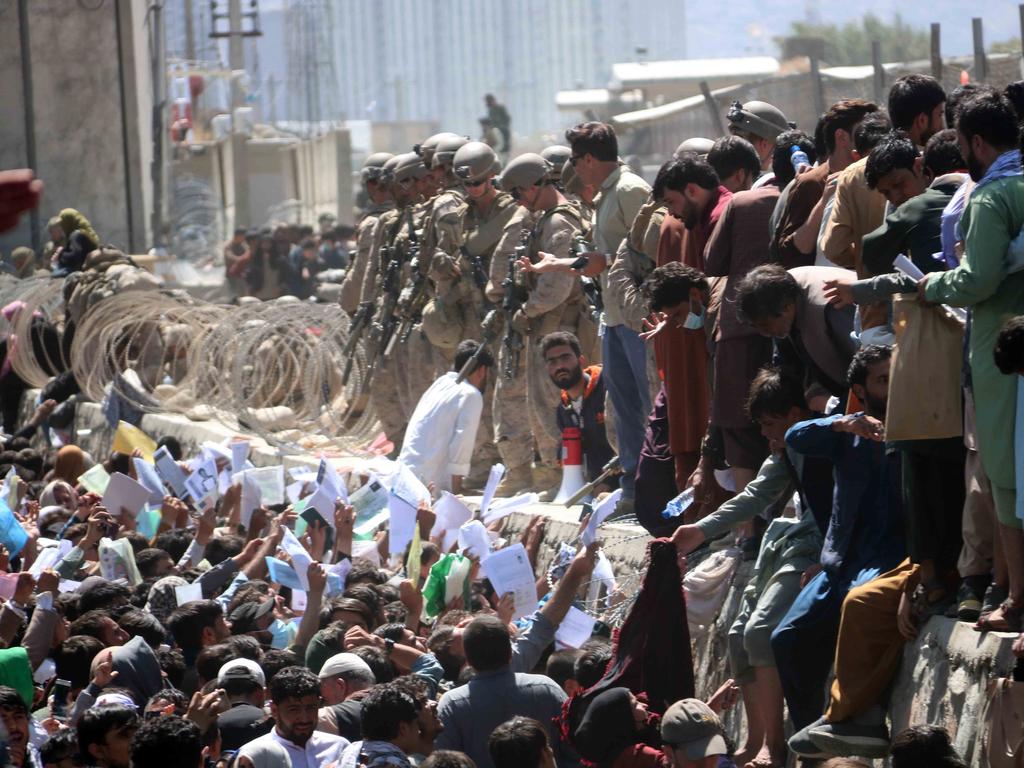Immigration Minister Andrew Giles acts on Afghan visas after assessors rejected warnings on fall of Kabul
Andrew Giles is intervening in hundreds of appeals from Afghans denied visas after authorities failed to properly evaluate the possibility of Kabul falling to the Taliban.

The Immigration Minister is quietly intervening in what are likely to be hundreds of appeals from Afghans denied visas after assessors failed to properly evaluate the possibility of Kabul falling, despite repeated warnings it was imminent.
Nearly two years after the Taliban seized Kabul, the Federal Court has been inundated with immigration appeals from applicants claiming the Immigration Assessment Authority denied their visas, having rejected expert advice that the return of the Islamic fundamentalist group was imminent.
In one case slated for an appeal hearing in September, the IAA found there was near to no evidence the Taliban would take over the Nawur district, just south of Kabul.
“While I have accepted there have been security incidents, the evidence before me does not support that the Afghan government or security forces are losing control of the Nawur district,” says the IAA finding from April 2021, three months before Kabul fell.
“I am not satisfied the situation will deteriorate in the reasonably foreseeable future.
“I am not satisfied the applicant will face a real chance of harm of any kind during any transit period.”
Another case, initially heard in August 2017, is the subject of an appeal on the basis that Federal Court judges “fell into appellable error in considering whether there was jurisdictional error in the way the IAA … dealt with country information relating to the risk of serious harm to a person who is of Hazara ethnicity and Shia Muslim religion in Afghanistan, and more particularly, in Kabul”.
Solicitor Michaela Byers said the IAA chose to ignore “piles of evidence” from academics and field experts that demonstrated the fall of Kabul was inevitable and imminent.
Ms Byers is representing six Afghans – all of whom arrived in Australia by boat and who are appealing against Federal Court decisions to deny their visas. One of those six had his appeal waved through by Immigration Minister Andrew Giles last Thursday.
Ms Byers said she understood Mr Giles would intervene – or already had intervened – in hundreds of cases like this, considering 9861 people were denied protection under the fast-track assessment process introduced by the Coalition government in 2014.
She said she believes all the Afghans struggling to have their appeals heard were boat arrivals.
“What’s going on behind the scenes is matters are being brought to the minister’s attention, and he’s intervening,” she said. “We got all our Afghan clients who still hadn’t been resolved, and sent a message to the minister to intervene.”

Ms Byers said one client was instructed by the Federal Court to return to Kabul one week before it fell, on the advice of an immigration assessment tribunal.
“These people are here illegally, they’ve got no work rights, they received no JobKeeper, they have no healthcare,” she said. “The information was there, and it was all from Australian sources. They just chose to ignore it.”
ANU emeritus professor of diplomacy and immigration William Maley said warning signs had been “extremely strong” that Kabul was at risk of falling, especially from February 2020 when the US government signed a peace deal with the Taliban, which saw the closure of the Afghanistan embassy in Australia.
“I was horrified by the sanguine views coming out of government circles about what was likely to go on,” Professor Maley said. “There’s no excuse for tribunals or administration authorities that are dealing with individual cases not to take that kind of risk.”
Professor Maley gave evidence in the Ben Roberts-Smith defamation trial in June 2021 that the situation in Afghanistan was “deteriorating rapidly” and advised judge Anthony Besanko to advance the hearings of Afghan witnesses who were in Kabul.
“If that had not happened, their testimony would have been lost, because the situation had collapsed within a month,” he said.
“I don’t think there was any reason or doubt the deterioration was happening very rapidly.”

Professor Maley said it was now impossible to send the Afghan refugees back to Kabul. The best thing to do would be to “recognise that people who are in this situation are going to be with us”.
“The change in circumstances in Afghanistan is so radical that any assessment they would be safe to return is really of no value at this point,” he said.
“I suspect that would certainly apply to any one of the Hazara ethnic group, anyone who has been involved in human rights advocacy, anyone who was associated either directly with or had connections to the previous Afghan government. Because we know people like that are being seized and their bodies have ended up back with their families after three days of torture.”
Ms Byers said the IAA ignored Professor Maley’s opinion, claiming the decision to do so had led to hundreds of Afghan refugees being tied up in expensive litigation processes to ensure they could secure a visa. “The other side of the coin shows these people are running up litigation costs and taking up valuable time in court when there are limited resources available,” she said. “It’s all such a big waste of time.”
Monash University international relations professor Jacqui True said it was an “extreme failure” on the part of the IAA not to appropriately assess the potential of Kabul falling. “If they had reasonably assessed that situation, they would have seen there would be extreme risks to any ethnic minority returning to Afghanistan,” Professor True said.
A government spokesperson said: “Under section 48B of the Migration Act, the minister is able to intervene to allow those refused a protection visa to make another protection visa application if there is new and credible information put forward or there have been significant changes in country circumstances since the initial application was decided.”








To join the conversation, please log in. Don't have an account? Register
Join the conversation, you are commenting as Logout